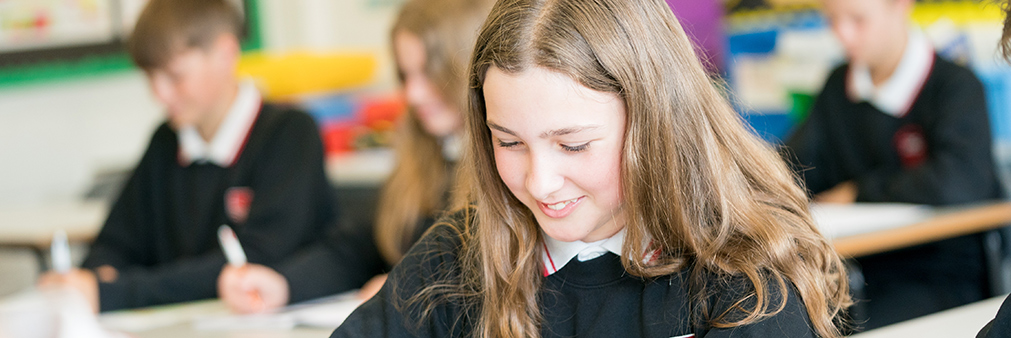
Mathematics
Curriculum Vision
‘Wherever there is number, there is beauty’
- Proclus, Greek philosopher-
Our curriculum journey takes the fundamental maths skills and slowly develops them into more advanced concepts. Throughout their time at Chapel High, students experience increasingly difficult mathematical concepts as well as being challenged to apply their understanding in unfamiliar contexts, including the growth of reasoning and problem solving skills.
We pride ourselves on helping students to become logical problem solvers meaning that the reasoning and problem solving questions form a significant part of each learning journey, spanning from within a single lesson to across the 5 years maths curriculum. It is this problem solving ability that will develop an individual’s love for maths and allow them to enter the wider world equipped to overcome whatever obstacles they encounter.
Knowledge and Skills
Staff and students work hard to develop a range of knowledge and skills which can be applied across the maths curriculum, often seeing topic areas as interlinked by content, skills or the approach needed. We begin by ensuring that all students have strong numeracy skills as this helps them to understand that there are often multiple valid methods to reach the correct answer. This supports our teaching for understanding approach and helps students overcome any preconceptions they may have about maths, whilst developing an affinity for the subject. In years 7-9, we slowly build students mathematical skills through increasingly challenging topics within 6 learning “themes”. These often include multiple topic areas and account for transferable skills:
- The structure of the number system
- Operating on number
- Multiplicative reasoning
- Sequences and graphs
- Statistics and probability
- Geometry
In years 10 and 11, we continue to build students mathematical skills, but these are split across 5 key content areas:
- Number
- Algebra
- Ratio, proportion and rates of change
- Geometry and measures
- Statistics and probability
Every student will learn topics from each content area each year by revisiting the previous year’s learning and building upon it to give the opportunity for consolidation as well as stretch and challenge for all, regardless of any prior attainment levels.
Alongside the knowledge students acquire, we also do a significant amount of work on transferrable skills which can be broadly broken down into: fluency, reasoning and problem solving. These skill areas help us to develop well rounded mathematicians who have a high level of enjoyment for the subject, as well as building transferable skills which they can apply to other subjects and real life scenarios.
Context
We have worked tirelessly over the years to build a curriculum that promotes a love and interest in mathematics whilst supporting those who struggle and challenging those who excel. We have built a strong belief that through a teaching for mastery approach and the development of transferrable skills that anyone can become a competent mathematician.
You can find our year 7 to 9 curriculum here.
You can find our year 10 and 11 curriculum here.
Years 10 and 11 GCSE Maths
All students study maths to GCSE, following either the foundation tier route or the higher tier route, both of which are examined at the end of year 11.
Examination Information
| Qualification | GCCE Mathematics (9-1) from 2015 |
|---|---|
| Board | Edexcel |
| Syllabus number | 1MA1 |
| Website link | http://www.edexcel.com |
| Assessment details | Three written exam papers contribute equally to the qualification Each paper lasts 1 hour 30 minutes Paper 1 Non-calculator, Papers 2 & 3 Calculator Exams in the Summer of year 11 only |
| Recommended coursebook if appropriate | Edexcel GCSE Mathematics (9-1) Higher Student Book Publisher: Pearson Author: Edexcel ISBN: 9781447980209 Or Edexcel GCSE Mathematics (9-1) Foundation Student Book Publisher: Pearson Author: Edexcel ISBN: 9781447980193 |
| RECOMMENDED REVISION GUIDES AND WORKBOOKS | Revise Pearson Edexcel GCSE (9-1) Mathematics Revision Guide Higher Revise Edexcel GCSE (9-1) Mathematics Revision Workbook Higher Revise Pearson Edexcel GCSE (9-1) Mathematics Past Papers Plus Higher |
| Websites | bbc.co.uk/bitesize www.mathswatchvle.com (students have a login) |

